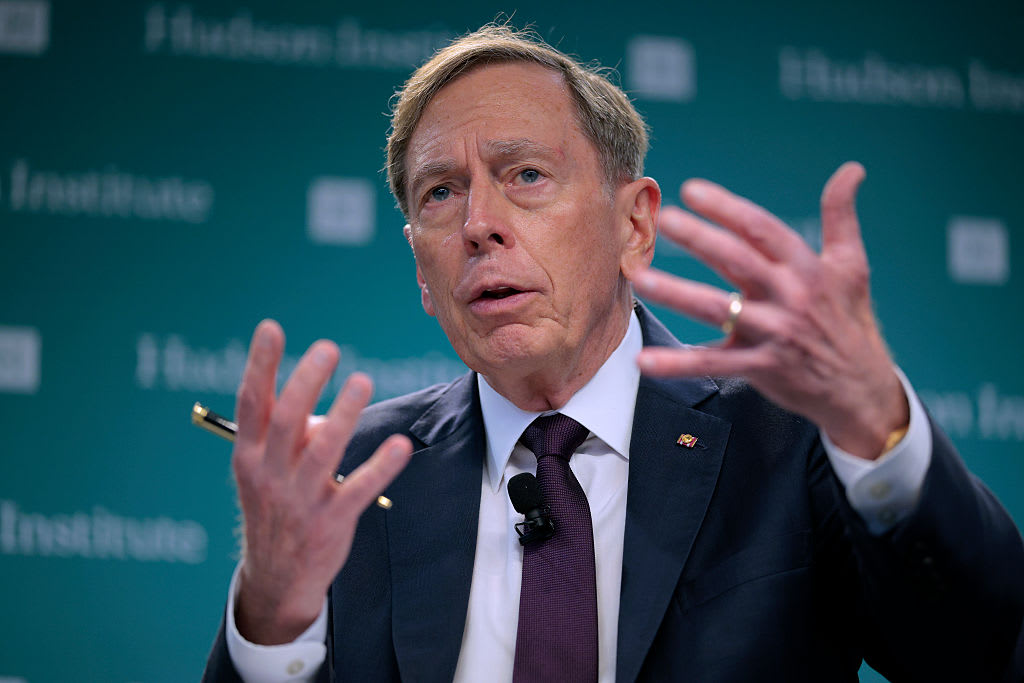Transcript: David Martin and John Sullivan on "Face the Nation," June 25, 2023
The following is a transcript of an interview with John Sullivan, former U.S. ambassador to Russia, and David Martin, CBS News national security correspondent, that aired on "Face the Nation" on June 25, 2023.
MARGARET BRENNAN: For more on the situation in Russia, we turn to CBS News National Security Correspondent David Martin and former U.S. Ambassador to Russia, now a CBS News contributor, John Sullivan. Good to have both of you here. David, let's start on just what happened on the ground, 124 miles outside of Moscow. That's how far the Wagner group says they got. What does this tell us about Russia's intelligence and military?
DAVID MARTIN: Well, it came as a surprise to U.S. intelligence. They, they had some warning that there was going to be a mutiny. But they were surprised when the Russians put up no resistance, allowed Prigozhin to go into their military headquarters at Rostov, and then send his army unopposed north toward Moscow. And then, they were surprised again, by how quickly a deal was made. They had expected a longer, more violent affair. And that's why people like the National Security Adviser, Chairman of the Joint Chiefs of Staff canceled their travel plans, because there was the danger that this mutiny could mushroom into a civil war. And that brings up all sorts of concerns about the security of Russia's nuclear weapons, and what you learn is that when a person like Putin is sitting on top of an arsenal among thousands of nuclear weapons, his problems very quickly become your problems.
MARGARET BRENNAN: Right. And ambassador. I mean, it's, it sounds strange, sometimes that phrase "catastrophic success" when foreign policy analysts talk about it, but are we actually in a situation where Vladimir Putin is preferable to Yevgeny Prigozhin in terms of running the Russian state?
AMBASSADOR JOHN SULLIVAN: Well, he's certainly a known quantity. He's a hardened adversary of the United States, but the alternative could be worse. So I think the Biden administration is rightfully concerned, as David suggests, with chaos and uncertainty in Russia, with their nuclear arsenal is very dangerous, not just for the United States, but for the world.
MARGARET BRENNAN: So when we- when you look at the map, Rostov, the city that you mentioned, it's a major logistics hub on that route to Moscow. Do we have any insight yet, David into what's happening within the Russian military right now? Are they remaining loyal to Vladimir Putin?
DAVID MARTIN: There was no sign that any of the security apparatus around Putin had- had switched sides. They seem to Hang- hang tough with Putin, the question of why there was no Russian resistance. I mean, one possible explanation is because Putin told them not to resist, we're gonna settle this as quickly and as peacefully as possible.
MARGARET BRENNAN: Ambassador, it was a surprise to many when it was Belarus that announced that they were the brokers here that the president of that country, now that country is pretty much viewed as a vassal state of Russia. Vladimir Putin controls it. There are nuclear weapons that Vladimir Putin says he's putting there. Explain this part of the puzzle. Like why would Yevgeny Prigozhin move to Belarus? Why are they suddenly appearing to be powerbrokers?
AMBASSADOR JOHN SULLIVAN: Well, as you point out, Margaret, Lukashenko is in power now as president because of Vladimir Putin. Vladimir Putin came to his rescue in August 2020. It was Lukashenko, who was dependent on Putin. But now think about this. This is as you know, Belarus is part of a union state with Russia they are conjoined. How dependent now is Putin on Lukashenko, it's an- it's evidence of the weakness that this reveals what's happened in the last three or four days, the weakness of Vladimir Putin, it's not just an appearance of weakness, it's actual weakness. A person that he has said is a traitor who has stabbed him and his nation in the back. He struck a deal with? A deal that he needed to strike to avoid bloodshed and chaos. What strong leader does that?
MARGARET BRENNAN: Well, exactly. And when you look at, I think, for so many Americans who are learning about Wagner Group for the first time, and they just heard Deborah's great reporting there, the U.S. considers them a transnational criminal organization. Is this like the mafia has its own military? I mean, how do we think about this?
AMBASSADOR JOHN SULLIVAN: Well, Prigozhin himself spent most of the 1980s in prison because he's a career criminal. Wagner operates in states in Africa and elsewhere, not because there are patriots who were executing policy on behalf of the Russian Government, they're there to get access to gold mined- gold mines, oil resources, and so forth. This is a money making organization, corrupt organization that the United States correctly treats as a transnational criminal organization.
MARGARET BRENNAN: And that's why, David, it was interesting to hear from both the Secretary and Mike Turner this concern of what happens next, not just in Ukraine, but in Libya, in Syria, throughout Africa. Do we have any concept yet? Does this become a separate company? Does this become part of the Russian military?
DAVID MARTIN: Well, I somehow don't think that Prigozhin has gone to Belarus to live out his days in idle exile. I don't think he's out of the game. And although there's been this deal with Vladimir Putin, who says Vladimir Putin is going to deliver on the deal. I mean, if I were Prigogine, I would keep my body guards close and my food taster closer because poison is one of Putin's favorite instruments of getting revenge.
MARGARET BRENNAN: He has a force of what 25,000 under his command, allegedly?
DAVID MARTIN: That's what he's credited for. He was at the start of this year he was credited with 50,000. And I think the drop from 50 to 25,000 is a measure of how much they lost in the- in the fighting in eastern Ukraine.
MARGARET BRENNAN: This was great to have your analysis and your reporting. Thank you both.
AMBASSADOR JOHN SULLIVAN: Thank you, Margaret.
MARGARET BRENNAN: We'll be right back.



